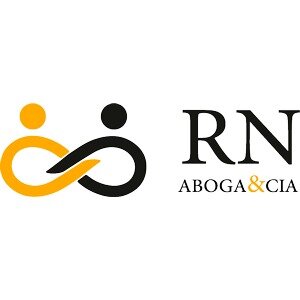Best Corporate & Commercial Lawyers in Seville
Share your needs with us, get contacted by law firms.
Free. Takes 2 min.
List of the best lawyers in Seville, Spain
About Corporate & Commercial Law in Seville, Spain
Corporate and commercial law in Seville refers to the set of legal norms and regulations governing the formation, operation, and dissolution of companies, as well as commercial transactions, contracts, and business activities within the city and the broader region of Andalusia. Seville is a vibrant hub for business, both for local entrepreneurs and international investors. As such, its corporate and commercial legal landscape is heavily influenced by Spanish national laws, European Union directives, and certain local rules specific to Andalusia. Law firms and legal professionals in Seville provide crucial support in establishing companies, managing corporate compliance, structuring transactions, and resolving disputes.
Why You May Need a Lawyer
There are many situations where seeking guidance from a corporate and commercial lawyer in Seville is essential. Among the most common reasons are:
- Setting up a new business entity, such as a sociedad limitada (limited liability company) or a sociedad anónima (public limited company)
- Drafting or reviewing commercial contracts, including partnership agreements, purchase agreements, and supplier contracts
- Ensuring compliance with local, national, and European regulations affecting your industry
- Handling mergers, acquisitions, or restructuring of companies
- Protecting intellectual property, such as trademarks or patents, during commercial activities
- Resolving business disputes, whether through negotiation, mediation, or litigation
- Dealing with employment matters and labor disputes within your company
- Navigating tax obligations, value-added tax (IVA), and other fiscal requirements
- Securing financing and investment or dealing with shareholder issues
- Managing cross-border transactions or expanding business operations internationally
Local Laws Overview
Seville’s corporate and commercial legal system operates within the broader framework of Spanish law, primarily governed by the Spanish Civil Code, the Commercial Code, and other statutes such as the Companies Act (Ley de Sociedades de Capital). Key considerations relevant to companies and entrepreneurs in Seville include:
- Company Formation: To establish a business, specific shareholder requirements, capital thresholds, and registration processes must be observed. All companies must be registered at the Mercantile Registry (Registro Mercantil).
- Corporate Governance: Spanish law prescribes strict rules concerning company management, directors’ duties, annual meetings, and shareholder rights to safeguard transparency and accountability.
- Contract Law: Contracts are enforceable provided they meet certain formal requirements under the Commercial Code and the Civil Code. Standard terms and consumer protection laws may apply, depending on the business.
- Labor Law: Employment contracts, working conditions, social security contributions, and dismissals are governed by Spanish labor law with some local enforcement policies in Andalusia.
- Taxation: Company tax, VAT (IVA), and other fiscal matters are regulated by national law with administration by local branches of the Agencia Tributaria.
- Intellectual Property: Businesses must protect their intellectual assets according to Spanish and European IP regimes, often starting with registration at relevant offices.
While regulations are generally uniform across Spain, some administrative processes and support may differ locally in Seville or Andalusia.
Frequently Asked Questions
What is the difference between a sociedad limitada and a sociedad anónima in Spain?
A sociedad limitada (SL) is a limited liability company with lower capital requirements, suitable for small-medium enterprises. A sociedad anónima (SA) is intended for larger businesses with higher minimum share capital and may be listed on the stock exchange.
How long does it take to register a company in Seville?
The company registration process can take a few weeks, depending on document preparation, notary appointments, and registration with the Mercantile Registry. Legal assistance can ensure faster and smoother handling.
What are the main taxes that businesses in Seville need to pay?
Businesses must pay corporation tax (Impuesto sobre Sociedades), VAT (Impuesto sobre el Valor Añadido - IVA), and potentially other local taxes such as business activity tax (Impuesto sobre Actividades Económicas).
Do I need a specific type of business license to operate in Seville?
Most businesses require a municipal opening license (licencia de apertura) from the Ayuntamiento de Sevilla, plus industry-specific permits depending on the activity.
Can foreign nationals open businesses in Seville?
Yes, foreign individuals and corporate entities can establish and own businesses in Seville, subject to Spanish company law and foreign investment regulations.
What should a commercial contract include to be valid in Spain?
A commercial contract should include the identity of parties, object of the agreement, terms and conditions, obligations, and the consideration. Some transactions may also require written form or notarial certification.
Are there any incentives for startups or new companies in Seville?
Yes, there are incentives and grants available, both at the regional Andalusian level and through national programs, especially for innovation, technology, and job creation ventures.
How are business disputes commonly resolved in Seville?
Business disputes are typically resolved through negotiation, mediation, or litigation in Spanish commercial courts. Arbitration is also an option if agreed by the parties.
What ongoing compliance does a company need to fulfill?
Companies must maintain proper accounting records, file annual accounts, submit tax returns, hold annual general meetings, and keep company records updated in the Mercantile Registry.
Is it necessary to have a company secretary in Spain?
Spanish law does not require a company secretary, but companies often appoint one to handle administrative and legal matters. The role is optional unless specified in the company’s bylaws.
Additional Resources
If you are seeking more information or legal assistance, the following resources and organizations may be helpful:
- Ayuntamiento de Sevilla: The municipal authority for business licensing and local regulations
- Registro Mercantil de Sevilla: The local Mercantile Registry for company registration and filings
- Cámara de Comercio de Sevilla: The Chamber of Commerce offers business support, advice, and networking
- Agencia Tributaria: The Spanish Tax Agency for tax guidance and compliance
- Andalusian Regional Government (Junta de Andalucía): Offers information about regional incentives and support for businesses
- Local Bar Associations: For lists of accredited corporate and commercial lawyers in Seville
Next Steps
If you need legal assistance in the field of corporate and commercial law in Seville, the best approach is to:
- Identify the specific legal matter you require assistance with, such as company formation or contract negotiation
- Collect all relevant documents and information about your business or transaction
- Contact a reputable law firm or legal advisor who specializes in corporate and commercial law in Seville
- Schedule an initial consultation to discuss your needs and clarify any doubts you have
- Follow your lawyer's guidance and adhere to local requirements for licensing, reporting, or compliance
Professional legal assistance will help you navigate the complexities of Seville’s commercial environment, minimize risks, and ensure compliance, allowing you to focus on growing your business with peace of mind.
Lawzana helps you find the best lawyers and law firms in Seville through a curated and pre-screened list of qualified legal professionals. Our platform offers rankings and detailed profiles of attorneys and law firms, allowing you to compare based on practice areas, including Corporate & Commercial, experience, and client feedback.
Each profile includes a description of the firm's areas of practice, client reviews, team members and partners, year of establishment, spoken languages, office locations, contact information, social media presence, and any published articles or resources. Most firms on our platform speak English and are experienced in both local and international legal matters.
Get a quote from top-rated law firms in Seville, Spain — quickly, securely, and without unnecessary hassle.
Disclaimer:
The information provided on this page is for general informational purposes only and does not constitute legal advice. While we strive to ensure the accuracy and relevance of the content, legal information may change over time, and interpretations of the law can vary. You should always consult with a qualified legal professional for advice specific to your situation.
We disclaim all liability for actions taken or not taken based on the content of this page. If you believe any information is incorrect or outdated, please contact us, and we will review and update it where appropriate.
Browse corporate & commercial law firms by service in Seville, Spain
Seville, Spain Attorneys in related practice areas.

















